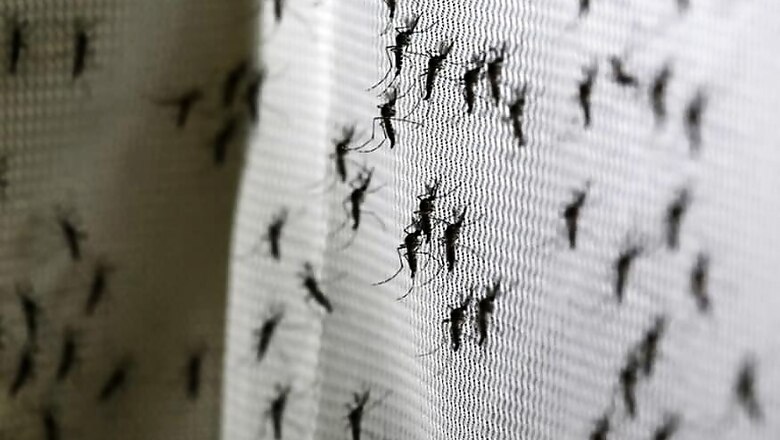
views
A new research suggests low-income neighbourhoods are more at risk from aggressive mosquitoes which may also be larger bodied and more efficient at transmitting diseases. The study was published by the Cary Institute of Ecosystems Studies. Scientists from the institute have been researching how environmental and social conditions affect mosquito numbers as part of a study on the Baltimore ecosystem.
The team focused on the Aedes albopictus mosquitoes as they dominate urban areas, are aggressive biters and can transmit an array of viruses. Speaking about the same, senior study author Shannon LaDeau said, species like the tiger mosquitoes thrive in urban areas altering risk of local disease emergence.
For the study, researchers used carbon dioxide and a mammal derived attractant to capture the mosquitoes. Speaking to CNN, LaDeau said female mosquitoes require a blood meal to reproduce and they use respired CO2 and other pheromone markers to detect prey. The researchers placed traps at ground level where mosquitoes that bite are most likely to be found. Furthermore, they used dry ice to generate CO2 and used ammonia, lactic acid and caproic to mimic humans. They were able to capture 1,097 mosquitoes over three years.
According to LaDeau, since wing size has been found to be an accurate proxy for the body length of the insect, the researchers measured the wing lengths of the tiger mosquitoes, finding that those that were trapped in the low income neighbourhoods were larger than those from affluent areas.
According to the researchers, a mosquito’s body size can influence traits that are important for disease transmission.
With less sanitation and more garbage, mosquitoes have more area to breed but why mosquitoes are larger in lower income neighbourhoods require more research.
According to LaDeau, responsible garbage management and maintenance in lower income neighbourhoods could be pivotal towards curbing the population of tiger mosquitoes. He further added that the residents of urban poor areas are more exposed to mosquitoes and thus are at a greater risk of contracting mosquito borne illnesses. He urges proper waste management to protect residents from mosquito borne diseases.




















Comments
0 comment